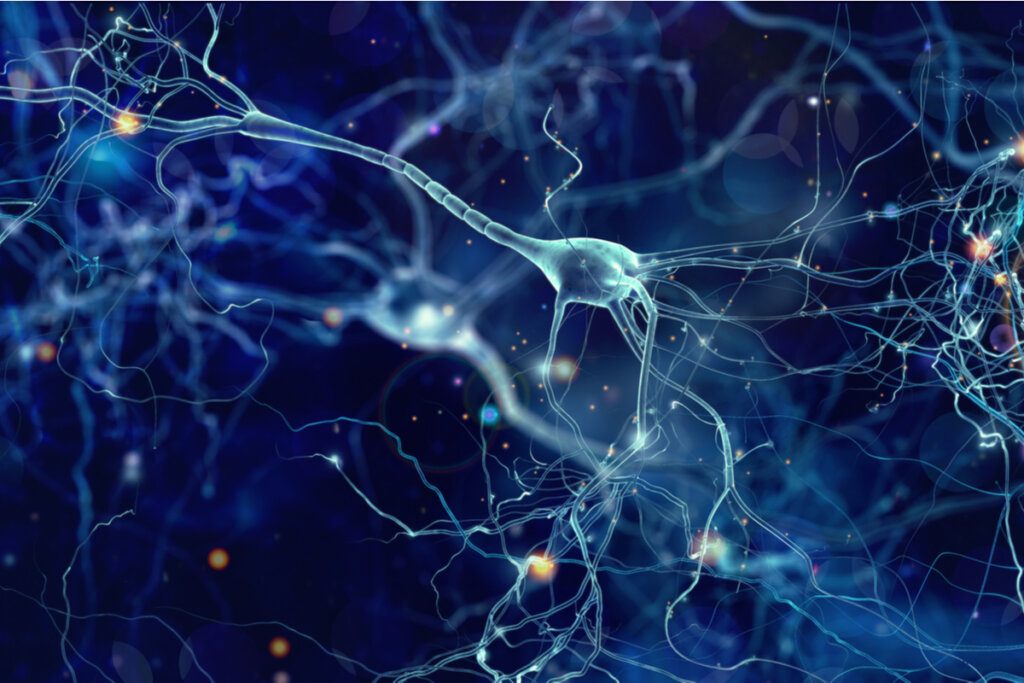Terminal Lucidity: Why Does it Happen?

Terminal lucidity is a phenomenon that’s been discussed since the time of Hippocrates, the Greek physician who lived four centuries before our era. Interestingly, it’s one of the least studied events in the scientific field, despite its relevance. In fact, the bulk of the information is anecdotal, although there’s some research on the subject.
Terminal lucidity is when a patient suffering from dementia, particularly Alzheimer’s, suddenly regains consciousness shortly before death. They suddenly remember everything they’d previously forgotten and behave in the most natural way as if they’d never had a problem. Shortly after, they die.
This phenomenon is of great importance since it would indicate that dementias are reversible. It suggests the problem lies in the access to information and isn’t a loss of information. So far, it hasn’t been possible to explain why terminal lucidity occurs, but there are several hypotheses in this regard.
“I say we should enjoy ourselves. The patient is speaking. Say what you want to say, listen to what they have to say. Because this moment transforms life. It is almost a gift. If tomorrow death arrives or improves it, we will live tomorrow.”
-Suelen Medeiros-
Terminal lucidity: some testimonies

Testimonies about terminal lucidity abound among relatives of people with different dementias. Also, in nursing homes and hospitals. Some of these situations have even become famous by being shared in newspapers and on social media.
One of them concerns a woman who was suffering from Alzheimer’s disease and was being cared for by her daughter and grandchildren. One day, to the astonishment of her family, she regained lucidity. She told her daughter that everything would be fine on August 31st, two days later. It was on this day that she died, having spent two days talking to her family, who were happy to have been able to say goodbye to her.
Another well-known case concerned a terminally ill woman who, shortly before dying, as would be expected, seemed extremely sleepy. The family hoped that she wouldn’t die before two of her grandchildren arrived, as they wanted them to be able to say goodbye to her, although she was unaware of this. Surprisingly, when the grandchildren arrived, she opened her eyes, said a prayer for each of them, and then died.
The restoral of lucidity
We’re not certain why some people experience terminal lucidity. The frequency of the phenomenon is also unknown since many more seem to die without having passed through this state of recovered consciousness.
Some researchers think that there’s an intense release of hormones, such as adrenaline, among others, when the organism is close to death. Such overproduction could cause powerful effects in the brain, to the point where it would activate neurons. This would lead to the recovery of lucidity.
However, there’s a problem with this hypothesis. That’s because it’s assumed that in diseases such as Alzheimer’s, some neurons are irreversibly damaged. So how come they suddenly work? Regeneration of such neurons is ruled out. Therefore, where does the clarity come from?
The mind and the brain

Another hypothesis regarding the phenomenon of temporary lucidity indicates that it’s an expression of the distance between the mind and the brain. The brain isn’t the mind, nor is the mind the brain. Neuropsychiatrist, Peter Fenwick, author of the book, The Art of Dying, indicates that the mind is a reality that forms part of universal consciousness.
The brain, meanwhile, is comparable to a TV set. It’s like a device that captures the signals of universal consciousness but doesn’t have the capacity to produce them. Indeed, just like a TV, it shows such signals as if they come from it even though they don’t.
Therefore, when the brain isn’t working properly, it transmits signals in a distorted way. Thus, shortly before death, the brain connects with this universal consciousness and then stops distorting the signals. Consequently, terminal lucidity emerges, a reconnection between brain and mind.
Nevertheless, neither of these hypotheses can be fully tested, at least not yet. Terminal lucidity is usually fleeting and there’s no time to really observe it. It would also be unethical since the person involved isn’t in a position to give consent. Indeed, any investigation could interfere with that almost “sacred” moment in which a person about to die manages to reconnect with the world and with the people they love.
Terminal lucidity is a phenomenon that’s been discussed since the time of Hippocrates, the Greek physician who lived four centuries before our era. Interestingly, it’s one of the least studied events in the scientific field, despite its relevance. In fact, the bulk of the information is anecdotal, although there’s some research on the subject.
Terminal lucidity is when a patient suffering from dementia, particularly Alzheimer’s, suddenly regains consciousness shortly before death. They suddenly remember everything they’d previously forgotten and behave in the most natural way as if they’d never had a problem. Shortly after, they die.
This phenomenon is of great importance since it would indicate that dementias are reversible. It suggests the problem lies in the access to information and isn’t a loss of information. So far, it hasn’t been possible to explain why terminal lucidity occurs, but there are several hypotheses in this regard.
“I say we should enjoy ourselves. The patient is speaking. Say what you want to say, listen to what they have to say. Because this moment transforms life. It is almost a gift. If tomorrow death arrives or improves it, we will live tomorrow.”
-Suelen Medeiros-
Terminal lucidity: some testimonies

Testimonies about terminal lucidity abound among relatives of people with different dementias. Also, in nursing homes and hospitals. Some of these situations have even become famous by being shared in newspapers and on social media.
One of them concerns a woman who was suffering from Alzheimer’s disease and was being cared for by her daughter and grandchildren. One day, to the astonishment of her family, she regained lucidity. She told her daughter that everything would be fine on August 31st, two days later. It was on this day that she died, having spent two days talking to her family, who were happy to have been able to say goodbye to her.
Another well-known case concerned a terminally ill woman who, shortly before dying, as would be expected, seemed extremely sleepy. The family hoped that she wouldn’t die before two of her grandchildren arrived, as they wanted them to be able to say goodbye to her, although she was unaware of this. Surprisingly, when the grandchildren arrived, she opened her eyes, said a prayer for each of them, and then died.
The restoral of lucidity
We’re not certain why some people experience terminal lucidity. The frequency of the phenomenon is also unknown since many more seem to die without having passed through this state of recovered consciousness.
Some researchers think that there’s an intense release of hormones, such as adrenaline, among others, when the organism is close to death. Such overproduction could cause powerful effects in the brain, to the point where it would activate neurons. This would lead to the recovery of lucidity.
However, there’s a problem with this hypothesis. That’s because it’s assumed that in diseases such as Alzheimer’s, some neurons are irreversibly damaged. So how come they suddenly work? Regeneration of such neurons is ruled out. Therefore, where does the clarity come from?
The mind and the brain

Another hypothesis regarding the phenomenon of temporary lucidity indicates that it’s an expression of the distance between the mind and the brain. The brain isn’t the mind, nor is the mind the brain. Neuropsychiatrist, Peter Fenwick, author of the book, The Art of Dying, indicates that the mind is a reality that forms part of universal consciousness.
The brain, meanwhile, is comparable to a TV set. It’s like a device that captures the signals of universal consciousness but doesn’t have the capacity to produce them. Indeed, just like a TV, it shows such signals as if they come from it even though they don’t.
Therefore, when the brain isn’t working properly, it transmits signals in a distorted way. Thus, shortly before death, the brain connects with this universal consciousness and then stops distorting the signals. Consequently, terminal lucidity emerges, a reconnection between brain and mind.
Nevertheless, neither of these hypotheses can be fully tested, at least not yet. Terminal lucidity is usually fleeting and there’s no time to really observe it. It would also be unethical since the person involved isn’t in a position to give consent. Indeed, any investigation could interfere with that almost “sacred” moment in which a person about to die manages to reconnect with the world and with the people they love.
All cited sources were thoroughly reviewed by our team to ensure their quality, reliability, currency, and validity. The bibliography of this article was considered reliable and of academic or scientific accuracy.
- Arráez, V., Barneto, C., & Arráez, E. (2021). Atendiendo el proceso de morir. Human@ s-Enfermería en Red, (2), 22-24.
- Parnia, S., & Fenwick, P. (2002). Near death experiences in cardiac arrest: visions of a dying brain or visions of a new science of consciousness. Resuscitation, 52(1), 5-11.
This text is provided for informational purposes only and does not replace consultation with a professional. If in doubt, consult your specialist.







